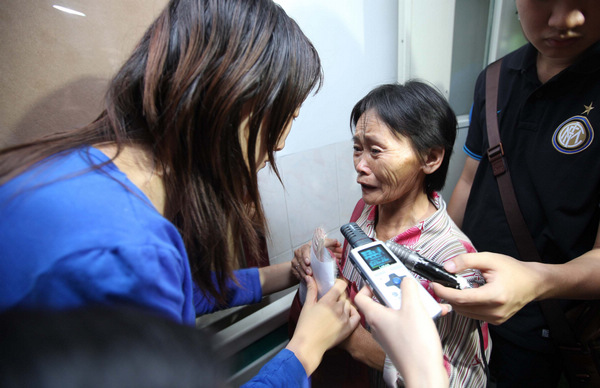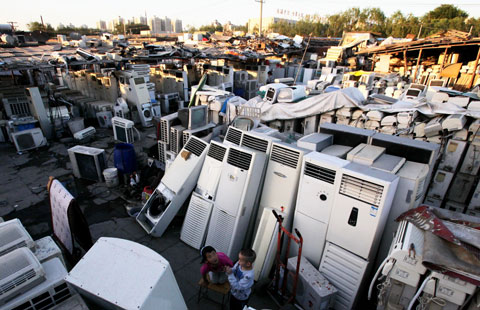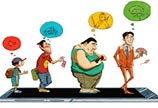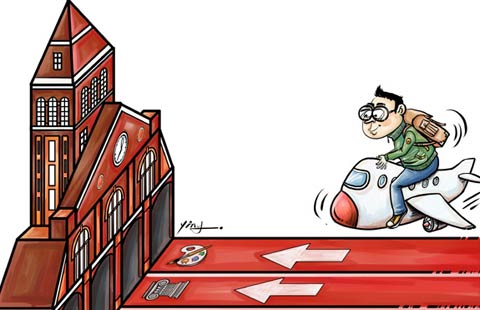Lei Feng continues to lead by heroic example
By Wu Wencong and Feng Zhiwei (China Daily) Updated: 2012-03-05 08:17Great loss
Social morality has been a hot topic since early last year, when a series of news stories appeared to highlight the unwillingness among bystanders to help people in need.
Many incidents involved elderly people falling to the ground, including an 88-year-old man who choked to death as people looked on.
Arguably the most shocking was the case of Wang Yue, the toddler who was ignored by 18 passers-by after being run over by two vehicles in Shenzhen, Guangdong province. Video footage taken by surveillance cameras was posted online in mid-October and caused outrage. The 2-year-old girl, known more commonly by her nickname Yue Yue, died in hospital several days later.
The news resulted in media commentators, Web users and sociologists joining to lament the loss of social values in China.
Ever since, the government has been pushing the message of altruism, with several regional authorities even introducing policies to promote the need for role models.
Last month, officials in Changsha, Lei Feng's home city, announced that decisions about recruitment as well as employee medical benefits and housing will now favor candidates with strong charitable backgrounds.
Days earlier, Guangzhou also released a draft regulation for public consultation that said people who return lost money will get 10 percent as a reward.
Opinion has so far been divided on the policies.
A commentary piece published by Weifang Evening News in East China's Shandong province on Feb 20 read: "Morality has nothing to do with material interests. Chen Xianmei, the trash collector who was the only person to try and help Yue Yue didn't lend a hand for the sake of a reward.
"If someone does good deeds just for the reward, it has nothing to do with morality. It's simply a business deal," it read.
Liu at the Lei Feng Memorial Hall disagreed, however, and argued that people need to have "the ability to help others" before they can lend a hand.
Tan Huangfang, his 52-year-old former colleague, added: "If all people get for helping is a certificate that says what a good person they are, others are not going to want to follow in their footsteps. That goes especially for those who are injured in the act of doing good deeds.
"What we need to publicize is not only to do good deeds and be a nice person, but also the notion that good people always get rewards," said the retired tour guide, who worked at the memorial hall from 1986 until 2009.
- Seven villagers murdered in N China
- China steps up tobacco control efforts
- Five jailed for separatism in Xinjiang
- Letter asks for leniency in poisoning case
- Antibiotics in surface water pose 'indirect health risk'
- Tianjin airport opens up transit link to Beijing
- High levels of antibiotics in China's major rivers
- China to dig tunnel for Asian rail system
- Bering strait line to US possible, experts say
- China: Stop oil rig harassment








